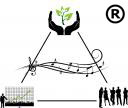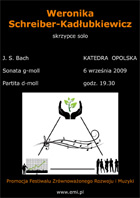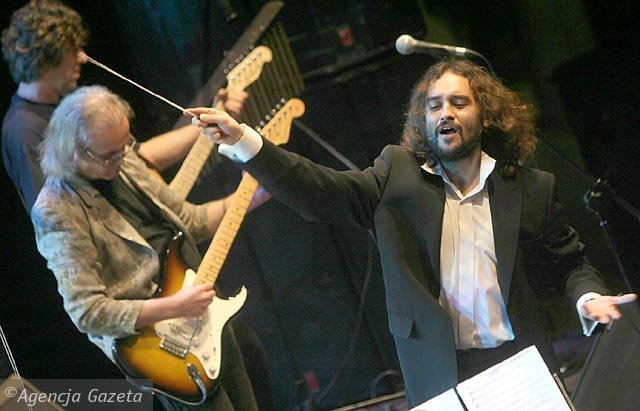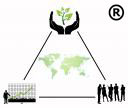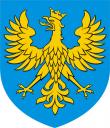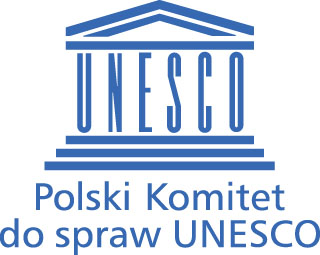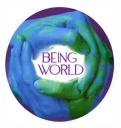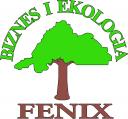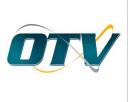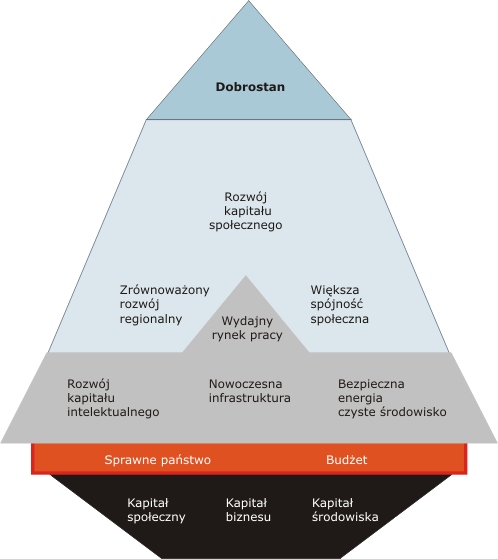Czy zrównoważony rozwój to tylko hasło związane z funduszami unijnymi, czy też “prawidło” życia naszych czasów?
Uważam że:
- – naukowcy spotykają się na konferencjach, gdzie we własnym gronie dzielą się swoimi przemyśleniami na temat zrównoważonego rozwoju, bez szerokiego przekazu dla mediów, polityków i dla społeczeństwa;
- – w urzędach powstają dokumenty planistyczne niezbędne w procedurach pozyskiwania funduszy unijnych, w których zapis na temat zrównoważonego rozwoju ma miejsce, bo jest tam niezbędny ze względu na politykę Unii Europejskiej;
- – strategię zrównoważonego rozwoju duże przedsiębiorstwa publikują na stronach internetowych, ale głównie w celach marketingowych;
- – średnie i małe przedsiębiorstwa nic na ten temat nie wiedzą lub uważają z góry, że ich na to nie stać, że mają większe własne problemy;
- – wartości odżywcze żywności są coraz gorsze, rolnictwo jest bardziej nastawione na zysk niż na gospodarkę ziemią i produktami rolnymi w duchu zrównoważonego rozwoju;
- – koncerny farmaceutyczne i usługi medyczne głównie liczą się z zyskiem;
- – uczelnie zaznajamiają studentów z problematyką zrównoważonego rozwoju;
- – szkoły zaznajamiają uczniów z ekologią;
- – media wolą nagłaśniać wypadki transportowe i wpadki polityków…
Kategoria: Sustainable development Blog, CSR | Komentarze wył. »
Konkurs o tytuł Gmina Zrównoważonego Rozwoju nie odbył się, ponieważ zarejestrowane podmioty nie złożyły ankiety zgłoszeniowej.
Nie udało się również pozyskać dotacji dla tego projektu, gdyż potencjalne podmioty, z którymi firma EMI mogła startować do istniejących funduszy, odmówiły współpracy w tym zakresie (OIG, OCRG).
Kategoria: Competition Commune ZR/SD | Komentarze wył. »
REGULAMIN FUNKCJONOWANIA I PRZYZNAWANIA PRAWA DO TYTUŁÓW „MENEDŻER ZR/SD” i „GMINA ZR/SD” oraz PROMOCYJNEGO ZNAKU GRAFICZNEGO
POSTANOWIENIA OGÓLNE
Nazwa pliku Regulaminu
Nazwa pliku Regulaminu: Regulamin Konkursów ZR SD 2010
Organizatorzy
Organizatorami Konkursów są redakcja czasopisma „Biznes i Ekologia” i firma EMI .
Biuro Konkursów
Biuro Konkursów prowadzi firma EMI, autor Regulaminu.
Promocyjny znak graficzny
Autorem promocyjnego znaku graficznego jest Filip Syrylak. Znak i tytuły podlegają ochronie. Wanda Pazdan jest autorem tytułów „Menedżer ZR/SD” (Menedżer Zrównoważonego Rozwoju) i „Gmina ZR/SD” (Gmina Zrównoważonego Rozwoju). Wyłączne prawa majątkowe do znaku i tytułów posiada firma EMI.
Terytorialny zasięg Konkursów
Konkursy adresowane są do menedżerów i gmin Europy.
Honorowy Patronat
Marszałek Województwa Opolskiego i Prezydent Miasta Opola, Polski Komitet ds. UNESCO, Krajowa Izba Gospodarcza i Biznes Centre Club, COMMITMENT TO EUROPE arts@business i Being World doceniając rolę zrównoważonego rozwoju w XXI wieku, poparli akcję promocyjną i udzielili honorowego patronatu nad ww. Konkursami i Festiwalem Zrównoważonego Rozwoju i Muzyki.
Definicja pojęcia menedżer zrównoważonego rozwoju
Menedżer ZR/SD: menedżer zrównoważonego rozwoju (sustainable development) to menedżer, który swoim działaniem i wpływem na otoczenie doprowadził do:
- zbudowania, wspólnie z pracownikami, wizji rozwoju danej jednostki organizacyjnej w dalekiej, określonej przyszłości, wizji, w której rozwój ekonomiczny dzieje się z poszanowaniem środowiska i społeczeństwa,
- przełożenia wizji na strategię zrównoważonego rozwoju w sposób:
- umożliwiający kontrolę jej realizacji
- zapewniający zharmonizowanie formy i celów ze strategiami wyższych szczebli administracji, aż po UE
- dostosowywania planistycznego i operacyjnego systemu zarządzania do raportowania postępów na drodze zrównoważonego rozwoju
- opracowania i wdrażania deklaracji kultury firmy w duchu zrównoważonego rozwoju,
- atmosfery, która dodaje odwagi pracownikom do podważania istniejącego stanu rzeczy i podejmowania ryzyka,
- rozwijania wyobraźni i duchowości pracowników oraz mobilizacji do ustawicznego kształcenia,
- angażowania kreatywności pracowników.
- Swoim działaniem stymuluje powstawanie innowacyjnych produktów/usług zasługujących na miano produktów/usług zrównoważonego rozwoju. Wspomaga projekty dotyczące kultury, zdrowia i edukacji.
Definicja deklaracji kultury firmy w duchu zrównoważonego rozwoju
Kulturę można określić jako ogół wytworów ludzi, zarówno wytworów materialnych, jak i niematerialnych (duchowych, symbolicznych, takich jak wzory myślenia i zachowania).
DEKLARACJA KULTURY FIRMY W DUCHU ZRÓWNOWAŻONEGO ROZWOJU powinna zawierać następujące deklaracje (nie koniecznie wszystkie):
- deklarację wdrożenia systemu zarządzania postępem na drodze do zrównoważonego rozwoju,
- deklarację wdrożenia publicznie dostępnego raportu z rocznej działalności w układzie GRI (Global Reporting Initiative) lub w podobnym układzie, i poddawania go audytowi niezależnej jednostce: uczelnia, instytut, firma doradcza, itp.),
- deklarację wytwarzania produktów, czy dostarczania na rynek usług coraz bardziej energooszczędnych, wodo-oszczędnych, z coraz mniejszą materiałochłonnością, ze zmniejszającą się emisją bezpośrednią i pośrednią ogółu zanieczyszczeń z procesów, ze zwiększającym się udziałem zużycia zielonej energii, ze zwiększającym się korzystaniem z lokalnych materiałów i surowców, z minimalizacją odpadów i nowoczesną gospodarką odpadami, ze zwiększającą się obsługą recyklingu sprzedanych produktów, chroniących bioróżnorodność, nie powodujących zagrożenia zdrowia ludzi, z wydłużonym cyklem życia poprzez zabezpieczenie dostępności części zamiennych przez cały okres planowanego życia produktu;
- deklarację oszczędniejszego użytkowania energii, wody i materiałów na cele pozaprodukcyjne,
- deklarację uniezależniania się od dostawców energii z uwzględnieniem zielonej energii,
- deklarację minimalizacji potrzeb transportu indywidualnego oraz ekologicznej i finansowej optymalizacji floty transportowej i jej użytkowania,
- deklarację dbałości o bezpieczeństwo w miejscu pracy,
- deklarację ustawicznego kształcenia pracowników z uwzględnieniem roli słowa, muzyki, obrazu i ruchu w rozwoju kreatywnej jednostki,
- deklarację wspomagania prewencji zdrowia,
- deklarację tolerancji dla odmienności kulturowej,
- deklarację zwiększania procentowego udziału zielonych zamówień,
- deklarację zwiększania procentowego udziału zamówień od dostawców, którzy respektują Kartę Praw Podstawowych UE, Kartę Praw Człowieka,
- deklarację coraz to większej dbałości o estetykę miejsc pracy i terenu zakładu oraz kulturę pracowników,
- deklarację zwiększania dbałości o rozwój lokalnej społeczności i społeczności Świata.
Definicja pojęcia gmina zrównoważonego rozwoju
Gmina ZR/SD to skrót od pojęcia gmina zrównoważonego rozwoju (sustainable development)
O gminie możemy powiedzieć, że jest gminą zrównoważonego rozwoju, jeżeli:
- w swojej wizji, zawarła rozwój społeczno-gospodarczy w określonej dalekiej przyszłości z jednoczesnym poszanowaniem środowiska i potrzeb społeczności świata
- taką wizję przełożyła na strategię zrównoważonego rozwoju, w sposób umożliwiający kontrolę jej realizacji,
- system planistycznego i operacyjnego zarządzania przystosowuje do raportowania postępów na drodze do zrównoważonego rozwoju,
- strategię zharmonizowała ze strategią UE, krajową i lokalnymi strategiami zrównoważonego rozwoju, lub podjęła działania w tym kierunku,
- wypracowała i ogłosiła deklarację kultury gminy w duchu zrównoważonego rozwoju.
Definicja deklaracji kultury gminy w duchu zrównoważonego rozwoju
Kulturę można określić jako ogół wytworów ludzi, zarówno wytworów materialnych, jak i niematerialnych (duchowych, symbolicznych, takich jak wzory myślenia i zachowania).
DEKLARACJA KULTURY GMINY W DUCHU ZRÓWNOWAŻONEGO ROZWOJU powinna zawierać następujące deklaracje (nie koniecznie wszystkie):
- deklarację wdrożenia systemu zarządzania postępem na drodze do zrównoważonego rozwoju,
- deklarację wdrożenia publicznie dostępnego raportu z rocznej działalności w układzie GRI (Global Reporting Initiative) lub w podobnym układzie, i poddawania go audytowi niezależnej jednostce (uczelnia, instytut, firma doradcza, itp.),
- deklarację dbałości o bezpieczeństwo, w tym, między innymi, deklarację wdrożenia Gminnego Centrum Energetycznego z zieloną energią, deklarację dbałości o jakość powietrza, zasoby i jakość wody, ziemi, ład przestrzenny, bioróżnorodność, redukcję zanieczyszczeń,
- deklarację wdrożenia Gminnej Bazy Danych, opartej na GIS, służącej strategicznemu i operacyjnemu zarządzaniu,
- deklarację minimalizacji odpadów i nowoczesnej gospodarki odpadami,
- deklarację realizacji powszechnej sieci wodociągowej i kanalizacji ścieków,
- deklarację minimalizacji potrzeb transportu indywidualnego oraz ekologicznej i finansowej optymalizacji floty transportowej i jej użytkowania,
- deklarację promocji ustawicznego kształcenia, jako jednego ze środków zapobiegania ubóstwu, podwyższania świadomości społecznej, budowania szacunku i zrozumienia dla różnych kultur, demokracji, wdrożenia nowych modeli produkcji i konsumpcji,
- deklarację stymulowania edukacji podnoszącej kwalifikacje i rozwijającej świadomość, kształtującej krytyczne myślenie, doceniającej rolę słowa, muzyki, obrazu i ruchu w rozwoju kreatywnej jednostki,
- deklarację propagowania prewencji zdrowia,
- deklarację propagowania tolerancji odmienności kulturowej,
- deklaracje zapobiegania patologiom społecznym,
- deklaracje promocji zmiany wzorców konsumpcji – odmaterializowanie konsumpcji (muzyka, sztuka, kultura fizyczna też dobrym towarem konsumpcyjnym),
- deklarację zwiększania procentowego udziału zielonych zamówień w puli zamówień,
- deklarację zwiększania procentowego udziału zamówień od dostawców, którzy respektują Kartę Praw Podstawowych UE, Kartę Praw Człowieka,
- deklarację większej dbałości o klienta, ergonomię i estetykę urzędu i terenu gminy, dziedzictwo kulturowe oraz kulturę pracowników,
- deklarację inicjowania zmian w urzędzie, szkolnictwie, służbie zdrowia, biznesie, społeczeństwie, organizacjach pozarządowych, w polityce i w mediach w kierunku zrównoważonego rozwoju.
Definicja pojęcia LAUREAT KONKURSU
- Laureat Konkursu o tytuł Menedżer Zrównoważonego Rozwoju to osoba – menedżer i firma, którą reprezentuje i która została umieszczona na Liście Laureatów ww. Konkursu.
- Laureat Konkursu o tytuł Gmina Zrównoważonego Rozwoju to osoba – wójt, burmistrz, prezydent miasta i gmina, która została umieszczona na Liście Laureatów ww. Konkursu.
- Utworzone będą dwie Listy Laureatów: Lista Menedżerów Zrównoważonego Rozwoju i Lista Gmin Zrównoważonego Rozwoju.
- Na Liście Menedżerów Zrównoważonego Rozwoju znajdą się nazwiska wójta/ burmistrza/ prezydenta miasta odpowiednio do listy Gmin Zrównoważonego Rozwoju.
- Pozycja na liście zależy od werdyktu Kapituły i społecznego poparcia przez Internautów.
Definicja pojęcia HONOROWY LAUREAT KONKURSU
Honorowy Laureat Konkursu to menedżer, który zgodnym zdaniem organizatorów zasługuje na takie miano, z racji swoich dokonań.
Koszt rejestracji i zgłoszenia
Rejestracja i zgłoszenia do Konkursów nie podlegają opłacie.
UPRAWNIENIA LAUREATÓW KONKURSU
Konkurs o tytuł Menedżer Zrównoważonego Rozwoju (Menedżer ZR/SD)
Po podpisaniu umowy licencyjnej z firmą EMI, prowadzącą Biuro Konkursu, każdy Laureat ma prawo:
- używać promocyjny znak graficzny (logo konkursu) i tytuł „Menedżer Zrównoważonego Rozwoju” lub zamiennie „Menedżer ZR/SD”, w okresie od 1 stycznia 2011 do 31 grudnia 2012:
- o na wszystkich dokumentach firmowych i materiałach promocyjnych firmy
- o na fasadzie budynku dyrekcji
- o na firmowej stronie internetowej
- o na tablicach informacyjnych firmy
- o otrzymać dyplom
- o uczestniczyć w Klubie Zrównoważonego Rozwoju (Klub ZR/SD) z uprawnieniami założyciela
- o uczestniczyć w krajowych i zagranicznych kampaniach informacyjnych organizowanych przez organizatorów
- o uczestniczyć w roli prelegenta Warsztatów oraz Gali Międzynarodowego Festiwalu Zrównoważonego Rozwoju i Muzyki.
Gmina Zrównoważonego Rozwoju (Gmina ZR/SD)
Po podpisaniu umowy z firmą EMI, prowadzącą Biuro Konkursu, każdy Laureat ma prawo:
- używać promocyjny znak graficzny i tytuł „Gmina Zrównoważonego Rozwoju” lub zamiennie „Gmina ZR/SD”, w okresie od 1 stycznia 2011 do 31 grudnia 2012:
- o na wszystkich gminnych dokumentach i materiałach promocyjnych gminy
- o na fasadzie budynku urzędu
- o na gminnej stronie internetowej
- o na tablicach drogowych informujących o wjeździe do gminy
- o na tablicach drogowych informujących o wjeździe do poszczególnych miejscowości
- o otrzymać dyplom
- o uczestniczyć w Klubie Zrównoważonego Rozwoju (Klub ZR/SD) z uprawnieniami założyciela
- o uczestniczyć w krajowych i zagranicznych kampaniach informacyjnych organizowanych przez organizatorów
- o czynnie i biernie uczestniczyć w konferencjach prasowych organizowanych przez organizatorów
- o uczestniczyć w roli prelegenta Warsztatów i Gali Międzynarodowego Festiwalu Zrównoważonego Rozwoju i Muzyki
- dodatkowo Wójt/ Burmistrz/ Prezydent Miasta ma prawo używać tytuł „Menedżer Zrównoważonego Rozwoju” w okresie od 1 stycznia 2011 do 31 grudnia 2012.
WARUNKI UDZIAŁU W KONKURSACH
- Dopuszcza się dwa języki do komunikacji: polski i angielski.
- Pomimo, że Konkursy adresowane są do menedżerów i gmin z terenu Europy, Kandydat z innego kontynentu nie podlega wykluczeniu.
- W wyjątkowych sytuacjach dopuszcza się menedżera spoza zarządu, jeżeli jego wpływ na budowę wizji, strategii zrównoważonego rozwoju i jej implementacji do operacyjnego systemu zarządzania, czy też wpływ na podejmowanie odpowiednich inicjatyw w stosunku do interesariuszy, były istotniejsze niż członka najwyższego szczebla zarządzania.
- Warunkiem niezbędnym jest wypełnienie Formularza Rejestracyjnego na stronie www.emi.pl w terminie do 30 kwietnia 2010 i po otrzymaniu Formularza Zgłoszeniowego i wypełnieniu przysłanie go na adres, z którego był wysłany, w terminie nie przekraczającym 30 czerwca 2010.
RAMOWA PROCEDURA UDZIELANIA TYTUŁÓW I PRAWA UŻYWANIA ZNAKU GRAFICZNEGO LAUREATA KONKURSÓW
- Ogłoszenie Konkursów w Internecie na stronach http://www.biznesiekologia.pl/ i http://www.emi.pl/
- Formularze Rejestracji i proces rejestracji na stronie http://www.emi.pl/ od 10 kwietnia 2009 do 31 maja 2010
- Weryfikacja rejestracji od 10 kwietnia 2009 do 5 czerwca 2010
- Wysyłanie Formularzy Zgłoszeniowych i Regulaminu od 10 kwietnia 2009 do 5 czerwca 2010
- Zgłoszenia Kandydatów do 30 czerwca 2010
- Ocena formalna Biura Konkursów
- Kontakty telefoniczne z aplikantami i werdykty Kapituły do 8 sierpnia 2010
- Gotowe Listy Laureatów 10 sierpnia 2010
- Wysyłka zaproszeń dla Laureatów na Galę Inauguracyjną Festiwalu Zrównoważonego Rozwoju i Muzyki Opole 2010 (Festiwalu ZR/SD-M Opole 2010) – 10 sierpnia 2010
- Inauguracyjna Gala Festiwalu ZR/SD-M 7 września 2010 Opole
- Plebiscyt Internautów od 7 września 2010 do 25 listopada 2010 na stronie http://www.emi.pl/
- Zawieranie umów licencyjnych z Laureatami od 7 września 2010 do 31 grudnia 2010
- Gala Zamykająca Festiwal ZR/SD-M Opole 2010 , Opole 7 grudnia 2010
REGULAMIN KAPITUŁY KONKURSÓW
- Kapituła stanowi jury Konkursów i jest niezależnym organem powołanym do wyłonienia Laureatów Konkursów i ustawienia ich na liście w kwalifikowanej kolejności.
- W skład Kapituły Konkursów wchodzą przedstawiciele organizatorów, instytucji naukowych, organizacji pozarządowych i mediów.
- Kapituła nie może się składać z mniej niż pięciu Członków.
- Członkowie Kapituły nie mogą w żadnej formie być zatrudnieni w firmie zgłoszonego menedżera lub w gminie. Jeżeli zachodzą okoliczności mogące powodować podejrzenie braku bezstronności, Członek Kapituły nie powinien oceniać takiego zgłoszenia.
- Kapituła wypracowuje werdykt w oparciu o wypełniony przez Kandydata Formularz Zgłoszeniowy oraz zasady i kryteria oceny (patrz punkt 6. Regulaminu). W sytuacjach braku oczywistych argumentów do rozstrzygnięcia kwestii spornych dopuszcza się rozmowę telefoniczną Przewodniczącego Kapituły lub osoby przez niego delegowanej z osobami podanymi przy rejestracji i zgłoszeniu. Rozmowa taka musi być potwierdzona drogą elektroniczną (e- mailem) – pytania ze strony Kapituły i odpowiedzi ze strony Kandydata.
- Kapitułę obowiązuje rzetelność działań i dochowanie poufności aplikacji.
- Pierwsze posiedzenie i ukonstytuowanie się Kapituły nastąpi najpóźniej do 30 kwietnia 2010. Na pierwszym posiedzeniu wybrany zostanie Przewodniczący Kapituły.
- Obowiązkiem Przewodniczącego Kapituły jest prowadzenie posiedzeń Kapituły i ogłoszenie wyników podczas Inauguracyjnej Gali Międzynarodowego Festiwalu Zrównoważonego Rozwoju i Muzyki.
- Werdykty Kapituły, po ogłoszeniu wyników są podane do publicznej wiadomości na internetowych stronach organizatorów i w materiałach patronów medialnych.
ZASADY I KRYTERIA OCENY
- Proces oceny jest trzyetapowy: ocena formalna Biura Konkurów, werdykt Kapituły Konkursów i Plebiscyt Internautów
- Zgłoszenie podlega wykluczeniu z danego Konkursu jeżeli występuje brak zgodności z wysłanym do wypełnienia Formularzem Zgłoszeniowym z winy Kandydata, zgłoszenie wpłynęło po 30 czerwca 2010, wypełniona treść nie jest adekwatna do opisu pól formularza.
- Członek Kapituły podaje pisemnie swoją ocenę w skali od 1 do 100 dla każdego zaakceptowanego po formalnej kontroli zgłoszenia. Obliczona średnia arytmetyczna stanowi wskaźnik pozycji na Liście Laureatów.
- Ocenę o wartości 1 uzyskują menedżerowie i firmy oraz gminy, których deklaracja kultury, pomimo braku wizji, zharmonizowanej strategii i odpowiednich inicjatyw wobec interesariuszy, świadczą o świadomości potrzeb wdrażania zrównoważonego rozwoju.
- Ocenę o wartości 100 uzyskują menedżerowie i firmy oraz gminy, których opublikowana wizja, wypracowana razem z pracownikami, a w gminach dodatkowo ze społeczeństwem, została zaimplementowana w strategii zrównoważonego rozwoju, strategia zrównoważonego rozwoju została zharmonizowana ze strategiami sąsiednich i współpracujących gmin, ze strategią regionalną, krajową i ze strategią zrównoważonego rozwoju UE , strategia została zaimplementowana do systemu operacyjnego i jest zarządzana, podjęto odpowiednie inicjatywy wobec interesariuszy, ogłoszono deklarację kultury w duchu zrównoważonego rozwoju.
- Dla dwóch kandydatur o takiej samej wartości wskaźnika pozycji na Liście Laureatów obowiązuje dodatkowo data wpływu wypełnionego Formularza Zgłoszeniowego do Biura Konkursu, a następnie alfabetyczna kolejność nazw.
- Pozycja na liście może ulec zmianie w wyniku Plebiscytu Internautów.
NAZWY PÓL FORMULARZA ZGŁOSZENIOWEGO
Konkurs o tytuł Menedżer ZR/SD 2010
Formularz Zgłoszeniowy
1. Konkurs o tytuł Menedżer ZR/SD
2. Zgłaszana osoba
2.1 Imię
2.2 Nazwisko
2.3 E-mail
2.4 Telefon (kraj, kierunek, numer)
2.5 Stanowisko w firmie
2.6 Stopień podległości w stosunku do zarządu (zarząd: stopień podległości = 0)
2.7 Staż pracy w firmie
2.8 Firma
2.8.1 Nazwa firmy
2.8.2 REGON
2.8.3 KRS (może być niewypełnione)
2.8.4 Adres firmy (ulica, nr, kod pocztowy, miejscowość)
2.8.5 Strona Internetowa
2.8.6 Telefon do sekretariatu (kraj, kierunek, miejscowość)
2.8.7 Ilość zatrudnionych (do 10, do 50, do 100, do 1000, powyżej 1000)
3. Rejestracja do konkursu
3.1 Data rejestracji na stronie www.emi.pl
4. Wizja firmy
4.1 Treść wizji
4.2 Proces opracowania wizji
4.3 Wkład zgłaszanej osoby w opracowanie wizji
5. Strategia zrównoważonego rozwoju
5.1 Stan wdrożenia
(dokument w opracowaniu, gotowy dokument, strategia uchwalona, strategia wdrożona)
5.2 Strategia na lata (od – do)
5.3 Cele strategiczne
5.4 Główne osiągnięcia, wydarzenia do 2009 roku włącznie,
związane ze zrównoważonym rozwojem
5.5 Główne cele strategiczne na najbliższe 3-5 lat
5.6 Dziesięć najważniejszych wskaźników – mierników celów
6. Roczne raporty z działalności firmy
6.1 Harmonizacja z polskim prawem (tak/nie)
6.2 Dobrowolna harmonizacja z GRI (www.globalreporting.org) (tak/nie)
6.3 Dostępność na stronie internetowej (tak/nie)
7. Harmonizacja strategii
7.1 Strategie, z którymi jest zharmonizowana strategia zrównoważonego rozwoju firmy
(UE, Polska, województwo, inne gminy)
(podać czy harmonizacja dotyczy tylko celów i wskaźników, czy również struktury treści)
8. Inicjatywy budujące wartość w relacji z następującymi interesariuszami
8.1 Społeczeństwo
8.1.1 Gminy
8.1.2 Społeczeństwo w innej formie zorganizowanej (władza, samorząd, NGO)
8.1.3 Społeczeństwo w formie niezorganizowanej
8.2 Biznes
8.2.1 Klienci
8.2.2 Inwestorzy
8.2.3 Finansiści
8.2.4 Dostawcy
8.2.5 Pracownicy
8.2.6 Zleceniobiorcy
8.2.6 Media
8.3 Środowisko
8.3.1 Środowisko lokalne
8.3.2 Środowisko globalne
9. Deklaracja kultury w duchu zrównoważonego rozwoju
9.1 Treść deklaracji kultury
Konkurs o tytuł Gmina ZR/SD 2009
Formularz Zgłoszeniowy
1. Konkurs o tytuł Gmina ZR/SD
2. Zgłaszana gmina
2.1 Nazwa gminy
2.2 Typ gminy (wiejska/miejska/miasto na prawach powiatu)
2.3 Województwo
2.4 Powiat
2.5 Adres Urzędu Gminy (ulica, nr, kod pocztowy, nazwa miejscowości)
2.6 Strona Internetowa
2.7 Telefon do sekretariatu (kraj, kierunek, numer)
2.8 E-mail do sekretariatu
2.9 Osoba do kontaktu w sprawie konkursu – wójt, burmistrz, prezydent miasta
2.10 Imię i nazwisko
2.11 Stanowisko
2.12 E-mail
3. Rejestracja do Konkursu o tytuł Gmina ZR/SD
3.1 Data rejestracji (dzień-miesiąc-rok)
4. Wizja gminy
4.1 Treść wizji
5. Strategia zrównoważonego rozwoju
5.1 Stan wdrożenia
(dokument w opracowaniu, gotowy dokument, strategia uchwalona, strategia wdrożona)
5.2 Strategia na lata (od – do)
5.3 Cele strategiczne
5.4 Główne osiągnięcia, wydarzenia do 2009 roku włącznie,
związane ze zrównoważonym rozwojem
5.5 Główne cele strategiczne na najbliższe 3-5 lat
5.6 Dziesięć najważniejszych wskaźników
6. Raporty roczne z działalności
6.1 Harmonizacja z polskim prawem (tak/nie)
6.2 Dobrowolna harmonizacja z GRI (www.globalreporting.org) (tak/nie)
6.3 Dostępność na stronie internetowej (tak/nie)
7. Harmonizacja strategii
7.1 Strategie, z którymi jest zharmonizowana strategia zrównoważonego
rozwoju gminy
(UE, Polska, województwo, inne gminy)
(podać czy harmonizacja dotyczy tylko celów i wskaźników, czy również struktury treści)
8. Inicjatywy budujące wartość w relacji z następującymi interesariuszami
8.1 Społeczeństwo
8.1.1 Gminy
8.1.2 Społeczeństwo w innej formie zorganizowanej (władza, samorząd, NGO)
8.1.3 Społeczeństwo w formie niezorganizowanej
8.2 Biznes
8.2.1 Klienci
8.2.2 Inwestorzy
8.2.3 Finansiści
8.2.4 Dostawcy
8.2.5 Pracownicy
8.2.6 Media
8.3 Środowisko
8.3.1 Środowisko lokalne
8.3.2 Środowisko globalne
9. Deklaracja kultury w duchu zrównoważonego rozwoju
9.1 Treść deklaracji kultury
Kategoria: Competition Rules | Komentarze wył. »
“Biznes i Ekologia” and EMI company convinced that a commune [in Polish: gmina, in other countries also called a municipality or township], as a basic self-government unit, has a huge impact on saving Our Planet and development of the human species,
announce the Competition for the title of:
“SUSTAINABLE DEVELOPMENT COMMUNE”
ZR/SD Commune 2010, for short
under auspices of:
Marszałka Województwa Opolskiego Prezydenta Miasta Opola
Polski Komitet ds UNESCO Business Centre Club
COMMITMENT TO EUROPE BEING WORLD
The goal is to promote system solutions adopted in communes, as well as communes themselves which:
– chose to start out on the sustainable development course,
– are known for their superior management culture,
– in management take into account capital in the classical meaning of the word but also global human capital and natural capital of the globe,
– stimulate development of innovative products/services which deserve to be called sustainable development products/services.
Assessment criteria for the “ZR/SD Commune 2010” title stem from the definition of ZR/SD Commune specified by EMI.
The results of the Competition will be announced in 2010 during one of the events of the Festival of Sustainable Development and Music in Opole (ZR/SD-M Festival). The winners will receive diplomas and throughout 2010 will be entitled to use the Winner of ZR/SD Commune 2010- Competition (Sustainable Development Commune) graphic symbol.
The Registration Form for Candidates for the title “ZR/SD Commune 2009” is published on EMI’s website. Registration will be accepted till April 30, 2010. The Application Form for 2010 will be accepted till June 30, 2010.
Apart from experts from EMI and Partners also a group of invited specialists and interested Internet users will participate in the assessment process, and they will be provided with a special form at EMI’s website for selecting the winners in October and November 2010.
All COMMUNES OF EUROPE are cordially invited to participate in the Competition!
All Internet users are cordially invited to select their candidates for winning!
Some Rules for the Edition of ZR/SD Commune 2010 Competition
Organizers:
Kategoria: Competition Commune ZR/SD | Komentarze wył. »
Voice in the public discussion on the Green Paper “POLAND 2030 – Development challenges”
On June 17, 2009, the Prime Minister of Poland, Donald Tusk presented a report “POLAND 2030 – Development challenges.” The document presents 10 biggest challenges Poland will be facing within the next two decades:
- Growth and competitiveness
- Demographic condition
- High professional activity and adaptiveness of labour resources
- Adequate infrastructural potential
- Energy and climate safety
- Economy based on development of knowledge and intellectual capital
- Solidarity and regional cohesion
- Improvement of social cohesion
- Performing state
- Poland’s social capital growth.
The expression ‘sustainable development’ has been used several times , sometimes with additional word: ‘regional.’ It is clear that the report, which is to be the framework for a long-term Strategy for Development of Poland, does no implement the EU Sustainable Development Strategy (UE SDS) –http://ec.europa.eu/sustainable/docs/renewed_eu_sds_pl.pdf, which according to the EU takes priority over the Lisbon Strategy. This means that as of today Poland has no binding Sustainable Development Strategy and it will not have one in the near future, unless the public discussion on the Report changes it.
In September 2009 Member States of EU plan the analysis of SDS implemention in the countries of EU …
In the face of the above, talking about ‘civilisational leap’ – isn’t it slightly exaggerated?
I am afraid that the presented polarisation and diffusion model of development does not guarantee the civilisational leap (the model can be found in the section “POLAND 2030 – Development Changes FINAL RECOMMENDATIONS,” page 375 of the Report in Polish and page 6 in English version of Final Recomendations http://www.polska2030.pl/ ).
Justification:
Only demographic development, economic growth and performing state were assumed as solid foundations for development of Poland. Out of three sustainable development capitals, the authors of the report notice only two: social and economic (performing state is the social capital). THEY FAIL TO SEE THE ENVIRONMENTAL CAPITAL!
The planned policies and indicators of success do not include topics related to the environment.
Till 2030 no changes are planned in the tax system toward shifting the tax burden from labour to consumption of resources and energy or environmental pollution.
Lack of the environmental capital in Poland’s development foundations will result in financial problems faced by local communities in implementing delegation of tasks and services pertaining to, for example, social circles – (planned Welfare Society).
Communication, education, labour market, social trust, performing state are all very important development factors, but failing to include the environmental capital in the foundations for development of Poland for the next 20 years is a big mistake. Reasonably used environmental capital may provide a big labour market and generate enormous profits in the long term – the Report discusses long term issues! Integration of three aspects (business, society, environment) with each action is crucial.
Proposal to amend the model
How different is this model comparing to one presented by the authors of POLAND 2030 report? It is the vision of including the environmental capital, as significant dimension of each action, irrespective of whether related to production, service, finances, administration, healthcare sector, culture, sports, or tourism. This is the vision which cares about the quality of life, the well-being in which the shift is made from “to have” to “to be.” It does not imply an obstacle to the development but rather indicates a direction fitting for the 21st century.
Under the environmental law, which defines sustainable development, the Report, which aspires to be a base for strategy, is subject to the environmental impact assessment.
I think some significant changes should be made in the model presented by the authors of the Poland 2030 – as for example those presented above. Otherwise the environmental impact assessments of strategies and programs created in the framework of the version of the report “POLAND 2030 – Development challenges,” published in June 2009, should be negative.
Additional proposal
Inclusion of the Balanced Scorecard in the Polish management process, where the economy, society and the environment would be treated as the “Client,” is another thought to ponder. In other words,tokens of success described in the Report should be extended by target environmental quality indicators.
Wanda Pazdan
Kategoria: Sustainable development Blog | Komentarze wył. »
Wanda Pazdan 16 Dec 2008
Culture can be defined as the whole complex ofproducts and human efforts, material and nonmaterial (i.e. spiritual, symbolic, such as mental and behavioral patterns).
THE DECLARATION OF COMMUNE CULTURE IN THE SPIRIT OF SUSTAINABLE DEVELOPMENT should include the following declarations:
– declaration to implement a progress management system in pursuit of sustainable development;
– declaration to implement public domain annual reports pursuant to GRI (Global Reporting Initiative) recommendations or in a similar form and to have them audited by an independent entity (university, institute, consulting company, etc.);
– declaration to care about safety, including, among others declaration to implement a Commune Energy Center with green energy, declaration to care about the quality of air, water, soil, biodiversity;
– declaration to implement a Commune Database, based on GIS, for strategic and operations management;
– declaration to minimize wastes and apply modern waste disposal methods;
– declaration to implement a commonly available sewerage and water supply system;
– declaration to minimize individual transportation needs and to optimize transportation fleet from the ecological and financial perspective;
– declaration to promote continuous education;
– declaration to support education which appreciates the role of literature, music (art) and physical exercise in development of creative individuals;
– declaration to promote prevention of disease;
– declaration to promote tolerance of cultural diversity;
– declaration to prevent social pathologies;
– declaration to promote changes in consumption patterns (music, art, physical culture are also legitimate consumer goods);
– declaration to increase percentage share of green procurements in the procurement pool;
– declaration to increase percentage share of orders from suppliers who respect the Charter of Fundamental Rights of the European Union, Charter of Human Rights;
– declaration to exercise greater care for clients, ergonomics and esthetic impression of the communal office and area of the commune as a whole, cultural heritage and culture of employees;
– declaration to initiate changes in education, health care, business, society, non-governmental organizations, in political life, and in the media in the direction of sustainable development.
Signed by the Head/Mayor/President of the City/Town
Kategoria: CSR, Competition Commune ZR/SD | Komentarze wył. »
Sustainable development implies all areas of our existence, both physical and spiritual. Integral understanding of the world, integral philosophy and music may prove to be helpful for us. Philosophers treat reality in different ways. Those who write that reality as we perceive it has impact on us and that we have impact on it – seem to be right. The way we interact with it has impact on the way reality interacts with us… Great physicist, Albert Einstein, said that imagination is more important than knowledge. Władysław Reymont wrote that reality is built from the same material our dreams are built. Methods of strategic management based on the vision suggest an active creation of reality. Spirituality of a human being constitutes the feature which has recently grown to an idea of all-powerful energy. Human beings, depending on the way they manage their spiritual potential, may be profuse sources of goodness or evil, both to themselves and to their environment. Individuals’ own efforts in cooperation with creative energy may change man’s history, about which Herbert George Wells wrote that it is becoming more like a race between education and a catastrophe…Polish environmental law provides the following definition: sustainable development is a social and economic development in which political, economic and social activities are integrated with maintenance of ecological balance and permanence of basic natural processes so that the possibility to satisfy basic needs of individual communities or citizens of the current and future generations is safeguarded.Often, the definition created by UN agencies is applied: “sustainable development is the social and economic development in which integration of political, economic and social activities takes place both in time and space, so that natural balance and permanence of basic natural processes is ensured.” [translated from Polish]In 1987, a concept of sustainable development, defined as “development protecting the needs of the current generation, without limiting implementation of the needs of future generations” entered the international political scene. The European Union gives special emphasis in its acts of law to implementation of environment protection issues into economic and social policies and strategies. Environmental protection – through integration of policies and strategies both in the area of economy and social issues, but also by emphasizing harmonization of actions in time and space – is also stressed in the provisions of the negotiated Constitution of the European Union.The Web site of the company Wanda Pazdan will promote sustainable development management, also treating family and development of individual units as important components of development. The bigger the number of people going along the path of sustainable development, the easier its implementation.M. Nowicki and L. Ribbe, in the last chapter of the book “Problemy Ekorozwoju Polski” [Problems of Eco-development of Poland], entitled “Jaka czeka nas przyszłośc?” [What is Our Future?], wrote: “Settlement dispersion and inflow of people representing various professions into the areas that used to be exclusively rural, should stimulate development of self-government, facilitate many positive citizen initiatives and election of local authorities by making an informed decision rather than voting for anonymous persons. Even now there are no technical obstacles to bringing back an ancient form of direct democracy, as thanks to computer networks and electronic mail it would be possible to conduct voting in form of general referenda on every matter which is vital for society. This pertains to local communities and the society of the whole country. It will create completely new forms of ruling and responsibility of those who rule. Political parties, which so readily refer to a mandate granted them by society, unlike today, will have to take face immediate verification of their actions, without waiting for next elections. Manipulation of opinion polls, based on a very small sample, which now are often an element of political game, will not be possible.”Reliable, “INTEGRATABLE” information made available to EVERYBODY is an indispensable element for implementation of development through sustainable development route. Information brings responsibility. Implementation of sustainable development requires universal responsibility. Business responsibility is no longer a slogan. Now, it involves actions. We have CR (corporate responsibility) and CSR (corporate social responsibility) pilot projects, we have FTSE4Good Index Series created to strengthen awareness and acceptance of socially responsible investments in international business, the process of ISO 14000 and EMAS system implementation is under way.Unification of the form and information scope of a report submitted by an enterprise management board to a commercial court for the preceding year (together with financial statements and notes to financial statements) is the product of international efforts by the Global Reporting Initiative (GRI) (see www.globalreporting.org ). The GRI, in a comprehensive way, highlights areas of business impact on society and the environment, as well as on other business representatives.Quotation from the HOPE project “…we must decide for a life with the feeling of universal responsibility, identifying ourselves with the global and our local communities. We are, at the same time, representatives of many nations and of one world, which are interrelated. Everybody shares responsibility for the current and future welfare and prosperity of the human family and for the greater, living world. The spirit of solidarity and kinship with life as a whole is stronger when we live by giving some of the mystery of life, being grateful for the gift of life and recognizing with humility the place of human beings in the world of nature. We urgently need a common vision of basic values which will ensure ethical foundations of an emerging world community.” [translated from Polish]S. Kozłowski “EKOROZWÓJ Wyzwanie XXI wieku” [ECO-DEVELOPMENT: Challenge of the 21st Century], in the last chapter entitled “Wyzwania XXI wieku” [Challenges of the 21st Century] wrote, among other things, about eco-capitalism. Here is a short citation: “Capitalism needs new strategies. Use of market mechanisms for preservation of the natural environment and, at the same time, creation, for each participant of the market, of an opportunity to cash in on it, is a must. This new thought pattern and direction for actions is called eco-capitalism (Wizsacker, Lovins, Lovins, 1999):
Principles of eco-capitalism:
1. Make sure assessments tell ecological truth.
2. First, do what is most profitable.
3. Invest in conserving the resources as this is cheaper than exploitation of resources.
4. Make markets for the conserved resources.
5. Promote fair competition.
6. Reward only desirable, not undesirable behaviors.
7. Tax what is less desirable rather than desirable.
8. Speed up withdrawal of ineffective equipment.Implementation of the assumptions of eco-capitalism is possible if we change our ideas about prosperity. Until now, prosperity has been commonly assessed through the value of the gross domestic product (GDP), i.e. turnover value. The GDP value often depends on the scale of mismanagement of earth’s resources, like destruction of tropical forests. At the same time, when a certain standard of living is achieved, GDP growth no longer entails our well-being. In industrialized nations, the feeling of well-being, measured by means of the Index of Sustainable Economic Welfare (ISEW) (see Annex No. 5) has a downward trend. To the contributing factors belongs, among others, the fact that globalization leads to climbing unemployment and shrinking income (Martin, Schumann, 1999).The new concept of capitalism is based on just the opposite assumption that the number of jobs will grow and that the period of employment in man’s life will be extended. Higher employment is observed mainly in the service sector. Transfer from earning in the industry sector to earning in the service sector is called tertierization. In the USA, only a few percent work in agriculture, and in industry – less than 20% of the employed.”Paraphrasing H. Skolimowski, a futurist and philosopher, new values for the new millennium are ecological values: reverence, responsibility, restraint, diversity, eco-justice for everything.It will not be possible without changing the ethical principles commonly adhered to. One of the most important “tools” necessary for implementation of sustainable development is education of the society in a new spirit. This is the most difficult task as it entails the change of our habits, patterns. Church, family, the media, science and the whole system of education – each can play a huge role in this endeavor.Quoting W. Eichelberger: “…The problem is that despite this unprecedented discovery of physicists who question the “old” paradigm, our culture, our way of understanding of the world and our way of functioning in it, are still governed by the old way of thinking. Many scientists and thinkers treat this as a potential source for a disaster. In their opinion, our civilization, based on the traditional paradigm which contradicts the reality, led to the situation in which it will not be able to expend enough energy to prevent an inevitable, as it seems, disaster. The inertia of this system is really puzzling, but is also terrifying. It is frightening that our life is shaped, and our behavior directed by the picture of the world that has little basis in reality. When you have no contact with reality, then your behavior leads to suffering and confusion, confusion in you and around you…”
We need a global sustainable development management which would provide the minimum required to cover essential needs of all citizens of the world, because, as Albert Einstein said, the Achilles’ heel of all democracies is the economy-related fear and the only chance for saving the civilization and human race is through establishing the World Government and creation of the system of security based on law.
A. Toffler, American sociologist, indicated that we go in the direction of the worldwide system which in its structure resembles a vast network of neurons rather than loose, bureaucratically divided, organization units.
Others, like John Kenneth Galbraith, a Harvard economist and a diplomat, predict establishment of something like a world government, which would replace the anemic United Nations.
John Lennon, in his Imagine, sang that life without nations is not so difficult to imagine.
Today, two UN agencies, namely, UNEP and UNDP aspire to create a global government of sustainable development. Anthropopressure and nature of pollution, their spreading ability, cause that such regional (transnational), and even better – worldwide – solutions are necessary. They should also encompass coordination of efforts related to security, in the broad meaning of the word. Paraphrasing Albert Einstein, we can notice that everything what happens in the sphere of international relations should be estimated through its capacity to facilitate or interfere with establishing the World Government. Einstein further observed that this government should be able to solve conflicts between the states through arbitration. Moreover, it should have a clearly written statute, approved by individual governments and states and only it should be equipped with any offensive weapons.
Wanda Pazdan
Material based on the text of the second part of the book by Aleksandra Wójtowicz and Wanda Pazdan “Johannesburg na żywo i co dalej” [Alive From Johannesburg and What Else] ISBN 83-88823-86-8, published by Agencja Reklamowo-Wydawnicza Arkadiusz Grzegorczyk in 2002.
Kategoria: Sustainable development Blog | Komentarze wył. »
Sustainable development management should be treated as a top priority among strategic activities. The sustainable development strategy is the main strategy, which should be harmonized at various levels of management: European Union, country, local authority, enterprise, institution, family and each citizen.Families and each one of us, apart from central and local authorities, enterprises and institutions, constitute important links in implementation of sustainable development strategy. In the chain of harmonized strategic activities for improved life quality of the present and future generations that aim at our planet’s survival, integral approach plays a significant role. Getting aware about spirituality of individuals and societies, relationships between material and spiritual things, is an important step toward implementation of sustainable development.The document Strategy for Sustainable Development of Poland to 2025 expresses the goals and scope of operations in the following way:“Preparation of the Strategy for Sustainable Development of Poland, hereafter called the Strategy, should, first of all, facilitate creation of conditions stimulating development processes which endanger the environment to the least extent. It is thus necessary to gradually eliminate processes and economic activities which are harmful to the environment and human health, to promote environmentally friendly methods of management and accelerate processes that restore the environment into its right condition wherever the upset of ecological balance occurred. Implementation of those requirements may not at the same time cause undesirable decline in the rate of economic growth, or widen the poverty margin, i.e. increasing or creating new social tensions and economic threats. In order to integrate directions of economic, social and ecological development, the Strategy for Sustainable Development of Poland to 2025 will specify correlations and interrelations among them and will mark out their directions and limitations. At the same time, the Strategy may not replace or double the strictly specialized policies, strategies and sector programs, with their own instrumentation, actors and time horizons. However, it dictates directions and framework for development of those sectors. Policies of different sectors should therefore constitute development and particularization of the principles, directions and goals stipulated by the Strategy.The general assumption of the Strategy for Sustainable Development of Poland is maintaining the current, aprox. 5%, economic growth, with indication of the target, approximately four times increase in efficiency of utilisation of raw materials, fuels and natural resources with reference to the unit of gross national product. At the same time, the Strategy should consider the needs regarding:
| – | the country territorial and ecological safety, |
| – | maintaining sovereignty of the State, |
| – | health and social protection of each citizen, |
| – | observance of the constitutional rights and obligations, |
| – | respect for and observance of the existing legal order |
Scientific circles, ecologic non-governmental organizations and representatives of the central and local administration who are aware of the threats of various crises and disasters potentially stemming from uncoordinated intensive economic development, without respect for social and ecological aspects of life, have demanded preparation of the document of this type for years.
In light of the constitutional obligation to promote sustainable development of the country, the task is the responsibility of the state administration, local self-governments, business entities and individual citizens. Parliament and the President of the Republic of Poland should serve as guarantors on behalf of the society and the State – serving, however, with creative functions.”
So, pursuant to the Strategy document, Parliament and President of the Republic of Poland have creative functions as far as sustainable development strategy at the level of Poland is concerned.
The current Strategy was passed as a Resolution of the Sejm of the Republic of Poland of March 2, 1999.
Secretariat-General DGI in June, 2006, by a document No. 10117/06 published an updated version of the EU Sustainable Development Strategy (EU SDS). Analyzing the structure of the document and comparing it with the Polish Strategy, it seems that Polish Strategy needs to be updated. It must also treated as one of the most important Polish documents, and the society should learn to obligate the President, Prime Minister and Parliament of the Polish Republic to account for any failures in its implementation. This means the structure, and, in some sections, the content of the Strategy should be changed.
In Poland, the document called the National Development Strategy [in Polish – Strategia Rozwoju Kraju] is in practice treated as the most important, major document on development. It is indispensable and very important as it is one of significant prerequisites for obtaining EU funds. However, for all of us, Poles, the document Strategy for Sustainable Development of Poland (harmonized with the EU SDS document) should be very important. It should serve nor only as a model for strategies, policies, sector programs, but also express the vision and the will of the society of Poland for development. The content of this document should be treated by the President, Parliament and Prime Minister of the Republic of Poland as the basis for the countrywide management.
In the EU SDS document, among key objectives, occurs, apart from the famous triple-bottom-line approach, the goal of international responsibility for enhancing, defending and establishing new democratic institutions throughout the world, based on peace, security and freedom.
Kategoria: Sustainable development Blog | Komentarze wył. »
Sustainable development implies all areas of our existence, both physical and spiritual. Integral understanding of the world, integral philosophy and music may prove to be helpful for us. Philosophers treat reality in different ways. Those who write that reality as we perceive it has impact on us and that we have impact on it – seem to be right. The way we interact with it has impact on the way reality interacts with us… Great physicist, Albert Einstein, said that imagination is more important than knowledge. Władysław Reymont wrote that reality is built from the same material our dreams are built. Methods of strategic management based on the vision suggest an active creation of reality. Spirituality of a human being constitutes the feature which has recently grown to an idea of all-powerful energy. Human beings, depending on the way they manage their spiritual potential, may be profuse sources of goodness or evil, both to themselves and to their environment. Individuals’ own efforts in cooperation with creative energy may change man’s history, about which Herbert George Wells wrote that it is becoming more like a race between education and a catastrophe…
Polish environmental law provides the following definition: sustainable development is a social and economic development in which political, economic and social activities are integrated with maintenance of ecological balance and permanence of basic natural processes so that the possibility to satisfy basic needs of individual communities or citizens of the current and future generations is safeguarded.
Often, the definition created by UN agencies is applied: “sustainable development is the social and economic development in which integration of political, economic and social activities takes place both in time and space, so that natural balance and permanence of basic natural processes is ensured.” [translated from Polish]
In 1987, a concept of sustainable development, defined as “development protecting the needs of the current generation, without limiting implementation of the needs of future generations” entered the international political scene.
The European Union gives special emphasis in its acts of law to implementation of environment protection issues into economic and social policies and strategies. Environmental protection – through integration of policies and strategies both in the area of economy and social issues, but also by emphasizing harmonization of actions in time and space – is also stressed in the provisions of the negotiated Constitution of the European Union.
This Web site will promote sustainable development management, also treating family and development of individual units as important components of development.
The bigger the number of people going along the path of sustainable development, the easier its implementation.
M. Nowicki and L. Ribbe, in the last chapter of the book “Problemy Ekorozwoju Polski” [Problems of Eco-development of Poland], entitled “Jaka czeka nas przyszłośc?” [What is Our Future?], wrote: “Settlement dispersion and inflow of people representing various professions into the areas that used to be exclusively rural, should stimulate development of self-government, facilitate many positive citizen initiatives and election of local authorities by making an informed decision rather than voting for anonymous persons. Even now there are no technical obstacles to bringing back an ancient form of direct democracy, as thanks to computer networks and electronic mail it would be possible to conduct voting in form of general referenda on every matter which is vital for society. This pertains to local communities and the society of the whole country. It will create completely new forms of ruling and responsibility of those who rule. Political parties, which so readily refer to a mandate granted them by society, unlike today, will have to take face immediate verification of their actions, without waiting for next elections. Manipulation of opinion polls, based on a very small sample, which now are often an element of political game, will not be possible.”
Reliable, “INTEGRATABLE” information made available to EVERYBODY is an indispensable element for implementation of development through sustainable development route. Information brings responsibility.
Implementation of sustainable development requires universal responsibility.
Material based on the text of the second part of the book by Aleksandra Wójtowicz and Wanda Pazdan “Johannesburg na żywo i co dalej” [Alive From Johannesburg and What Else] ISBN 83-88823-86-8, published by Agencja Reklamowo-Wydawnicza Arkadiusz Grzegorczyk in 2002.
Kategoria: Sustainable development def. | Komentarze wył. »
Kategoria: Sustainable development Blog, Sustainable development def. | Komentarze wył. »
